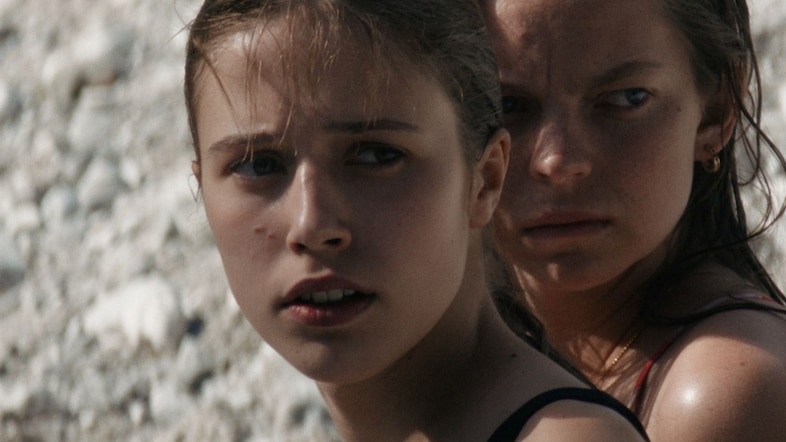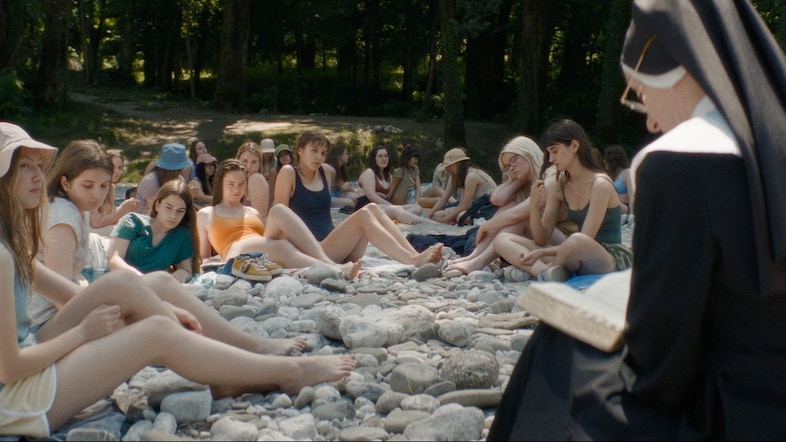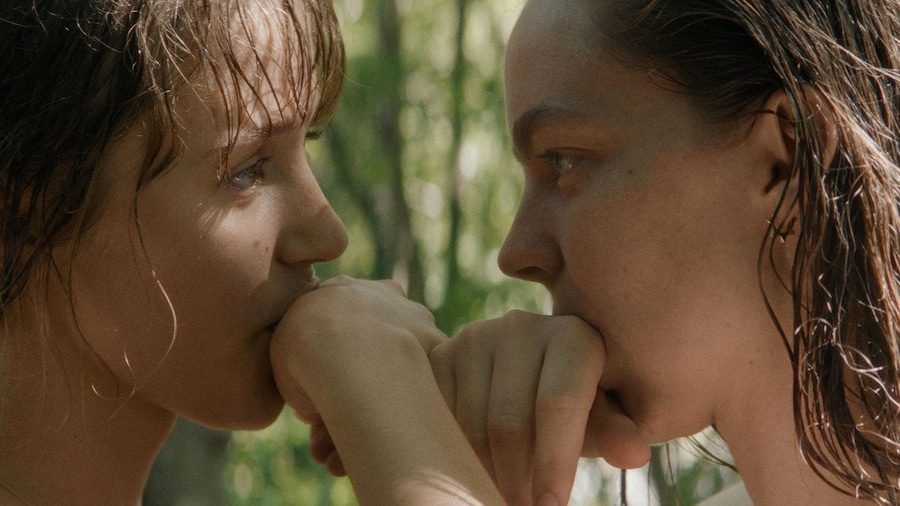Slovenian filmmaker Urška Djukic speaks with AnOther about her luminous tale of sexual awakenings on a Catholic choir-group retreat
In Little Trouble Girls, Urška Djukic steals upon moments in a young girl’s life so delicate they seem to actively resist definition. A coming-of-age drama of rare soul and intelligence, her feature debut charts the growing attraction between Catholic schoolgirls Lucija (Jara Sofija Ostan) and Ana Maria (Mina Švajger), as they take off on a choirgirls’ retreat at a convent in the countryside.
Ljubljana-born Djukic has rightfully earned comparisons with Celine Sciamma for the rapt attention she pays to her characters’ inner lives in the film, though she cites Lucretia Martel’s The Holy Girl as an influence for the way it “explores adolescent female sexuality in a subtle yet subversive way”. She got the idea for the story after being moved to tears by a real-life Catholic girls’ choir, whose rendition of an old Slovenian folk song struck an unexpected chord. “There was something about hearing these young girls, right on the edge of becoming women, that felt incredibly strong and important,” says Djukic, “especially knowing how often female voices have been silenced throughout history.” In the audience, she saw three priests sat across from her, equally moved by the song, an “enigmatic” image that “made me realise I had to explore deeper”.
Using the motif of the girls’ voices in unison, she set about creating a film rooted firmly in the senses, from the frequently goosebumps-inducing music to the pellucid glow of the girls’ faces shot in reverent close-up. “I wanted to immerse the audience so deeply that they experience the story with all their senses,” says Djukic, who began work on the script with co-writer Maria Bohr, later going it alone after they disagreed on which direction the film should take. “From the very beginning, the process was guided more by intuition than by references – it grew organically out of sound, emotion and observation.”
The film’s protagonist, Lucija, is a shy and slightly otherworldly young girl from a religious household. She is drawn into the orbit of Ana Maria, a charismatic presence who impresses her peers with her performance of eye-rolling worldly cynicism. Lucija’s innocence amuses Ana Maria, who nonetheless senses in her a kind of poise that emanates from within, and a romantic bond is formed that will perhaps not survive the weekend. For Djukic, casting close to type for maximum authenticity, the chemistry between her two young leads was paramount. “There was something magical about [Jara Sofia], like an old soul in a young girl’s body,” she says. “Mina, who we cast as Ana-Marija, brought a fearless energy and wild blue eyes that perfectly contrasted Lucija’s quiet sensitivity. Together, they embodied a kind of yin and yang – two opposing yet complementary forces.”

On the surface, Little Trouble Girls is a story about queer desire taking root under the unforgiving eye of the Catholic church. But the film plays out in ways that confound easy reading. When Lucija is told to kiss the most beautiful girl at the convent in a game of truth or dare, her decision to go with a lifesize statue of the virgin Mary leaves Ana Maria dumbstruck. “I was interested in the concept of attraction,” says Djukic. “What does it mean to be drawn to something? It’s not always about the desire for a sexual act. Sometimes you’re drawn to something another person has, something you are missing, but you long for. That, too, is a form of sexual energy. Lucija is drawn towards something she doesn’t yet understand, but which she needs to follow in order to grow.”
Ultimately, the film’s musing on the links between sex and sexuality, spiritual yearning and religion, stems from the director’s conviction that spirituality resides in the body. “To me, the idea of sexuality as something sinful acts almost like a hidden tool of control – it separates people from their own source of strength,” says Djukic. “When you’re truly connected to your body you become harder to manipulate, because you begin to trust your own intuition more than outside expectations.”

Lucija and Ana Maria’s relationship may not be destined to last, but through each other, they steal glimpses into a deeper truth, one that bridges the divide between body and soul enshrined by centuries of cultural dogma. “For me, it was important to bring this history to light, because these ideas don’t just belong to the past – they’re still used to limit and even enslave people. Through my films, I want to confront that legacy and open a space where those silenced experiences could finally be seen and heard.”
Little Trouble Girls is out in UK cinemas now.
